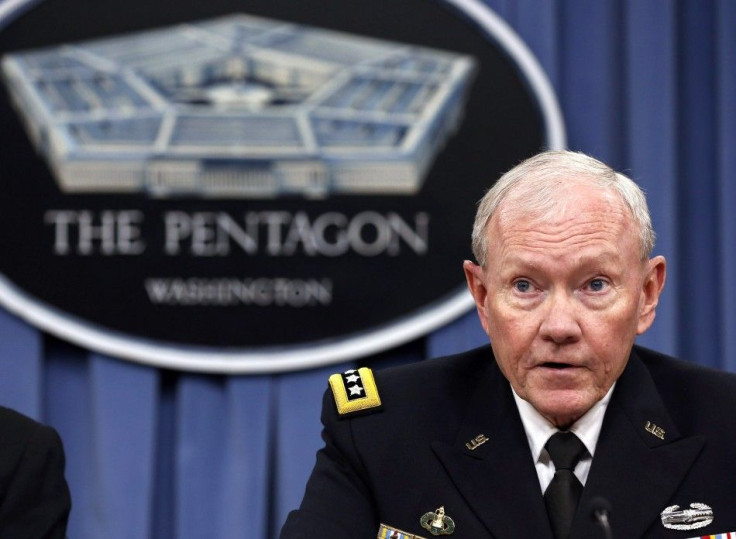Baghdad Could Soon Feel ISIS Wrath, Group Almost Made It to Airport – Gen. Dempsey

Gen Martin Dempsey has revealed the Baghdad airport was almost been overrun by the ISIS, in what could be a first admission of details concerning the airstrike combat mission against the blood-hungry extremist group.
In an interview with "This Week" on ABC, Dempsey said the terror group already came within 25 kilometres (15.5 miles) of the Baghdad airport as Iraqi forces fought off the advancing militant group fighters. Dempsey hinted the command must have scrambled to immediately assemble air combat units to ward off the radicals from the airport.
"You're not going to wait until they're climbing over the wall," Dempsey said. "Had [ISIS forces] overrun the Iraqi unit, it was a straight shot to the Baghdad airport. So, we're not going to let that happen."
"We need that airport."
He said they used the Apache [helicopter] because that was the tool most "immediately available." Despite the risk of sending low-flying attack helicopters, he said there was no other choice. "The risk of operating in a hostile environment is there constantly."
But it won't be long and ISIS may soon claim Baghdad. National Post, quoting Sabah Al-Karhout, president of the Anbar Province provisional council, located west of Baghdad, reported "Baghdad has now largely fallen under ISIS control." He said about 10,000 jihadi fighters have been seen in the area ready to assault the Iraqi capital anytime soon.
Dempsey told "This Week" on ABC he is most certain the ISIS will engage "indirect fire," or the use of mortar, rockets or artillery, into Baghdad."
An unidentified senior US defence official told AFP the situation in Anbar province has gotten fragile and is on the verge of collapse. "They are being resupplied and they're holding their own, but it's tough and challenging."
The situation has prompted Iraqi officials over the weekend to call on the U.S. for more definitive military defense, which is to send its ground troops. Dempsey hinted the ISIS could be out to recapture Mosul once it fully takes down Anbar province. When this happens, the U.S. may be forced to think and conduct "a different kind of advising and assisting... at some point in the future... because of the complexity of that fight."
"If you mean have I been asked to do it, the answer is no," he said. "Do I anticipate that there could be circumstances in the future where we were - where that would be part of the campaign? Yeah."





















